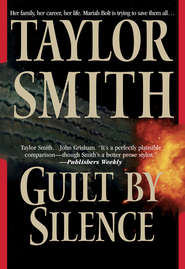По всем вопросам обращайтесь на: info@litportal.ru
(©) 2003-2024.
✖
Slim To None
Автор
Год написания книги
2018
Настройки чтения
Размер шрифта
Высота строк
Поля
Still, Hannah held back. “Sean, listen, this is worthwhile. Think about it. A million-dollar reward. We could radio the chopper to pick us up at the LZ tonight and take the day to check this out. One day, that’s all. I can dress up in one of these burqas in here, scout around and see if I can find out if they’re still holding her in the compound in town. If we could get her out…”
“Not a chance. That’s not what we were sent in to do. There will be no compromising this mission on my watch.”
“Just let’s—”
“No. We’ll report what we learned after we get these civilians safely out, but that’s as far as I’m willing to go. End of discussion. If you want to get paid for your part in this mission, Nicks, you’ll put your ass in gear right now, or I swear to God, I will leave you behind and you’ll get sweet bloody zip. Now, move it!”
Hannah hesitated, but she knew when she was beaten.
CHAPTER
9
Al Zawra, Iraq: Compound of Sheikh Ali Mokhtar Salahuddin
Kenner hung back in the shadows, watching the young American doctor through the window. He had spent most of his life living in the shadows. It was where he felt the most comfortable.
Soft light from a smoky kerosene lamp illuminated the infirmary like an old oil painting of some nineteenth-century battlefield hospital. The room was a classroom of the madrassah, the Koranic school behind the town’s mosque, used for teaching the young to read and understand the holy texts. Now, rows of straw-filled pallets lined one side of the room. The gray metal supply shelves on the opposite wall held bandages, medicines and other equipment removed from the Red Crescent clinic across town.
The half-dozen fedayeen wounded by U.S. forces a few days earlier occupied three of the straw-stuffed mattresses on the floor. Most of them lay still, evidently asleep. They had taken bullets in arms or legs, a relatively minor problem now that the doctor had removed the copper-clad hunks of shrapnel and brought the risk of infection under control with the stolen antibiotics. One of the men had bandaged ribs, cracked against the steering wheel when the Toyota truck he’d been driving had veered into a wall. Time alone would take care of his injuries, but morphine kept him quiet in the meantime.
The injuries of one of the last men were more serious. This man had taken several rounds from an M-16, and the bullets had shattered his right femur into jigsaw puzzle pieces, some of which had been extruding through the skin when his comrades finally managed to get him back to the compound, screaming in pain. That was when the doctor from the nearby Red Crescent clinic had been kidnapped and forced into service.
Amy Fitzgerald was bent over him now, her back to the open window. She had on the same green scrubs, considerably the worse for wear, that she’d been wearing when she was seized from the clinic. Now, however, she also had on a black shawl that covered most of her head and shoulders, concealing her curly blond hair. Salahuddin had been dismayed enough by the surprise of getting himself a female doctor to insist on this exercise in modesty—though not enough to rethink his strategy and release her. That he hadn’t known the newly arrived doctor at the local clinic was a woman didn’t say much for the so-called sheikh’s intelligence apparatus, Kenner thought contemptuously.
The wounded man groaned. Kenner heard the doctor’s low, soothing murmur as she prepared an injection. She held the syringe up to the light and watched as a tiny, shimmering stream shot from the tip. When she inserted the needle into the man’s arm, he stiffened briefly and then his entire body relaxed.
Dr. Fitzgerald capped the needle, then dropped back onto her heels with a sigh. As she did, the kerchief slipped off her hair and her fair curls caught the lamplight’s glow. Watching her patient as his ragged breathing fell into an easier rhythm, she made no attempt to put the head covering back in place.
Finally, she got to her feet with a clanking of the iron shackle and chain that Salahuddin’s men had clamped onto one ankle. Bolted to the floor in the center of the room, the chain was just long enough to allow her to move from patient to patient and to the medical supplies. She clumped awkwardly to the shelves, dragging the chain behind her. Her skin was pale with strain, and dark, puffy circles underscored her eyes. She’d lost some weight, but compared to most Iraqi women, Kenner thought, she was in ridiculously good health, with shining hair, flawless skin and the kind of gleaming white teeth that owed as much to expensive dental care as to nature.
Disposing of the needle in a small box, the doctor replaced the cap on a vial of what was probably liquid morphine and replaced the bottle on the shelf. Then, Dr. Fitzgerald walked over to what had been the teacher’s table, shoved against the wall underneath the blackboard at the front of the room. Leaning wearily back against the table, she covered her face with her hands. She made no sound, but Kenner thought she might be crying.
A better man than he might have been moved by the sight of a lovely young woman, kidnapped, frightened and alone, but for Kenner, she was merely a problem of logistics and politics—a target for domestic and international attention and a poster child for everything that could backfire in this campaign if things weren’t carefully handled. Salahuddin would have to be talked to.
He turned to go, but hesitated as the doctor’s hands dropped away from her face. She peered, frowning, in the direction of the window, almost as if she had sensed that she was being observed. Her shackles wouldn’t reach as far as the window and Kenner knew he couldn’t be seen from where she was, but he dropped back deeper into shadow anyway, backing off stealthily while she stared out into the night, waiting and watching for the next nasty surprise.
She was a very long way from home.
A soft light also shone in the window of Salahuddin’s quarters at the far end of the compound. Insomnia is the trademark of those who would rule the world, Kenner mused. How many plans to conquer were hatched in the dark hours before dawn while innocent souls lay in virtuous sleep?
Salahuddin’s personal bodyguard sat on a chair outside his door, massive arms crossed over a barrel chest. A strapping Tikriti named Bashir, the man had once been part of the security entourage of Uday Hussein, Saddam’s capricious and sadistic older son. One day, in a fit of pique over some perceived slight, Uday had apparently tossed a pot of boiling water in Bashir’s face. Now, puckered and scarred from chin to hairline, the Tikriti’s face resembled nothing so much as ground meat. Still, the man had been lucky to escape alive. It had been a fact of life in Saddam’s Iraq that those who knew the secrets of his inner circle served without question. If they fell into disapproval, they’d better flee fast and far. If not, they died ugly deaths.
Bashir had fled to Afghanistan, where he had landed in the camp of Salahuddin. The self-styled sheikh, preparing to return to take advantage of the growing confusion in his home country, was glad to offer protection in exchange for intelligence on the ruling family’s foibles and security arrangements. At the time, Salahuddin had not yet come out in open opposition to Saddam, but the writing was on the wall. Once, someone that ambitious would have been shot the moment he crossed the border. As the threat of foreign invasion mounted, however, the beleaguered dictator had sought allies wherever he could find them. Salahuddin had returned to Al Zawra and bided his time, consolidating his control on the town as he waited to see which way the wind was blowing in Baghdad. When the Americans overthrew Saddam, he declared himself ruler of this region.
The bodyguard rose to his feet and nodded as Kenner approached. “Aasalaamu aleikum,” he grunted. His grotesque face was scarred through to the deepest dermal layers. Incapable of expression, it was all the more unsettling for being unreadable.
“Wa-aleikum aassalaam,” Kenner replied. “I need to talk to the sheikh.”
The bodyguard’s black eyes, like shards of jet set into quivering meat, glanced at the eastern horizon. The sky had not yet begun to lighten, but it wouldn’t be long before the first gray-blue glimmer would begin to rise above the nearby hills. “He will be getting ready to make wud’u. You should return after the fajr.”
The fajr was the first in the series of five daily prayer times, spaced out from predawn until bedtime. Through repeated prayers in the course of a day, the devout were constantly reminded of God and his blessings and were advised to use the opportunity to seek guidance and forgiveness. Wud’u was the ritual washing that preceded prayers—hands, mouth, nose, face, arms, head, ears and feet brought clean to Allah, cleanliness of the body symbolizing the striving for purity of the soul.
“It cannot wait,” Kenner said. “I have a matter of importance to discuss with him.”
Bashir seemed to scowl, the ripples of his skin creasing deeper as he contemplated this ice-eyed, ghost-haired infidel whom the sheikh had inexplicably admitted to his inner circle. The bodyguard wasn’t fooled by Kenner’s alleged conversion to Islam. Trust in anyone, let alone strangers, had no place in his experience. Suspicion and paranoia were all that had kept him alive thus far.
He raised one massive hand. “Wait here.”
He rapped lightly, then stepped into the sheikh’s quarters and shut the door behind him. After a brief rumble of voices, the door opened again and Bashir stepped out, giving Kenner a grudging flick of the wrist that signaled permission to enter.
Inside, Salahuddin sat cross-legged on thick carpets, wearing a long white robe and crocheted skullcap, a wooden lap desk propped across his knees. He was working by the light of a brass oil lamp that hung by a chain from a pole set into the mosaic tiled floor. He gestured for Kenner to settle opposite him.
Despite a long, wiry beard and bushy eyebrows, his face was deceptively benign, his eyes a gentle, doelike brown. Though he had no family outside of the men who followed him, he looked almost fatherly. On the occasions when Kenner had seen him issue an order condemning some poor sod to be flogged or shot, the sheikh’s expression left the impression that the ruling pained him more than the condemned man. Salahuddin was a political handler’s dream. A man with a face like that could be unstoppable, Kenner knew, having spent a lifetime supporting those whose ambitions meshed with the interests of his own masters.
He had first met Salahuddin in Afghanistan, introduced by none other than Dick Stern, who was at the time working undercover, running anti-Soviet operations with the mujaheddin resistance. Salahuddin had showed up in the country for the first time in early 1989, just a few weeks before the Russians finally pulled out of Afghanistan. A young man of twenty-one who’d bought into the jihadist movement during a stint in prison, Salahuddin seemed disappointed to have missed out on the fun. Unschooled and largely illiterate, then as now, but intensely ambitious nonetheless, he went on from there to training camps in Syria and Yemen. Like Osama bin Laden, he was a follower of the strict Wahhabi strain of Islam, but there was little evidence that bin Laden had ever accepted Salahuddin as an equal or even a protégé in the struggle against the Zionists and western infidels—which played nicely into Kenner’s grand scheme of things. Salahuddin was a man desperate to be taken seriously.
“Aasalaamu aleikum,” Salahuddin said, smiling benignly.
Kenner settled cross-legged on the carpet and inclined his head briefly. “Wa-aleikum aassalaam.”
“You cannot sleep?”
“My duties prevent it. And you?”
“Just so. I was just going to have some tea. Join me?”
“Thank you.”
Salahuddin took a brass pot from a tray at his side and poured out two cups of steaming tea that must have been brought in only moments before. Kenner winced as the sheikh dropped four lumps of sugar into each cup, turning the strong black stuff into syrup that Kenner found almost undrinkable. Many children in the town went without bread, but Salahuddin always had ample food and plenty of black market sugar for his sickly-sweet tea.
“What is it that troubles you, Sheikh?” Kenner asked, glancing at the document spread out on the lap desk. It was a map of central Iraq, he noted.
“The American and British forces are closing in,” Salahuddin said, passing a hand over the map. “Up until now, they have been concentrating on the major cities, but now that the larger centers are more or less secured, they are expanding their search for Saddam. I think the encounter with the American forces last week was only the first shot. I fear there will be others.”
“They will not attack if they are sure of your cooperation.”
“So you say. And yet, they shot my men.”
“They could not have known they were your men, Sheikh. And the situation is confused at the moment. The Americans are still trying to sort out who to trust. That’s why you should let me speak to them for you.”
“I think rather it is I who must decide if they can be trusted,” Salahuddin replied. “So far, I am not confident. And now, I hear, they have put a reward on my head because I brought the doctor in to care for the men they wounded.”
Kenner sat back, confused for a moment until he realized what reward Salahuddin meant. “No, Sheikh, not on your head. The reward is for the safe return of the woman. And it is her family, not the American government that has sponsored it. Her father is a powerful and wealthy man. It may have been a mistake to take her.”
“I did not know when I sent for a doctor that it would turn out to be an American woman. There had been an Iraqi doctor at the clinic before.”
“Yes, sir, but he was a cousin of Saddam, as you know. He fled after Uday and Qusay were killed, fearing that the Americans would kill every Hussein they could get their hands on. The American girl arrived only a few days before your men took her.”











